Page 1 of 9

Europe’s Future Connected: Policies and Challenges for 5G and 6G Networks
ELF study: Techno-Politics Series 2
Series Editor: Antonios Nestoras
- Type: Publication,
- Year: 2022
- Member: ELF Secretariat,
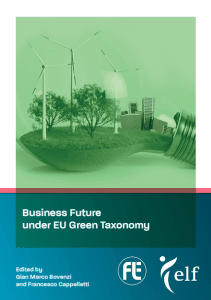
Business Future under EU Green Taxonomy
This publication aims at being a stimulus for a debate on the role of gas in the European Taxonomy and on energy transition policies.
- Type: Publication,
- Year: 2022
- Language: English,
- Member: Fondazione Luigi Einaudi,
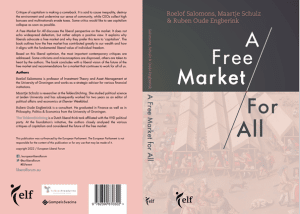
A Free Market for All
With the support of ELF the Dutch book ‘Een markt voor ons allemaal’ has been translated into an English version, ‘A Free Market For All’. The book explains why free market solutions are superior to state planning and state
monopolies.
- Type: Publication,
- Year: 2022
- Language: English,

For a free cannabis market in France: Fight the black market, protect consumers
Europe has all the cards in hand to be at the forefront of drug policy reform and show the rest of the world that another path is possible. Courage and method are all we now need.
- Type: Publication,
- Year: 2022
- Language: English,
![[Discussion Paper] Direct Foreign Investments in Europe by Luciano Vasques](https://liberalforum.eu/wp-content/uploads/2022/03/Discussion-Paper-Direct-Foreign-Investments-in-Europe-212x300.jpg)
Direct Foreign Investments in Europe
Discussion Paper
- Type: Publication,
- Year: 2022
- Language: English,
- Member: LibMov,
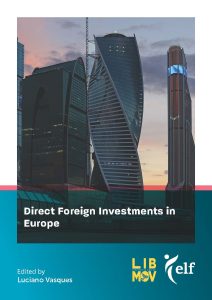
Direct Foreign Investments in Europe
With this work we intend to undertake some considerations regarding the regulatory procedures of foreign direct investments (“FDI”) within the European Union.
- Type: Publication,
- Year: 2022
- Language: English,
- Member: LibMov,
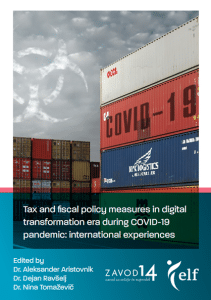
Tax and fiscal policy measures in digital transformation era during COVID-19 pandemic: international experiences
This publication provides case studies by country, on the ongoing issues related to tax and fiscal policy measures in digital transformation era during the COVID-19 pandemic.
- Type: Publication,
- Year: 2022
- Language: English,
- Member: Zavod14,
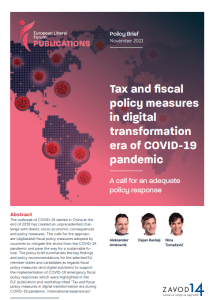
Tax and fiscal policy measures in digital transformation era during COVID-19 pandemic: A call for an adequate policy response
The policy brief summarizes the key findings and policy recommendations for the selected EU member states and candidates as regards fiscal policy measures.
- Type: Publication,
- Year: 2022
- Language: English,
- Member: Zavod14,
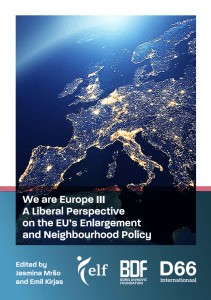
We are Europe III: A Liberal Perspective on the EU’s Enlargement and Neighbourhood Policy
Although European Commission has made several geopolitical attempts to accelerate the developments in the Western Balkans and Eastern Neighbourhood have, there has not been any significant progress on the ground.
- Type: Publication,
- Year: 2022
- Language: English,
- Member: Boris Divkovic Foundation, ELF Secretariat,
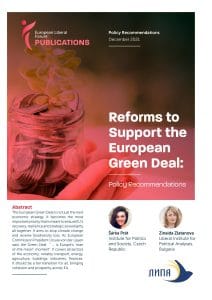
Reform to support the European Green Deal
The European Green Deal is not just the next economic strategy. It becomes the most important priority that is meant to ensure EU’s recovery, resilience and strategic sovereignty all together.
- Type: Publication,
- Year: 2022
- Language: English,
- Member: LIPA,
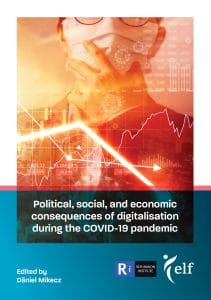
Political, social and economic consequences of digitalisation during the COVID-19 pandemic
This publication wishes to assess the political, social, cultural and economic consequences of digitalization during the COVID-19 pandemic. It also focuses on EU level policy solutions which were introduced to ease related conflicts and problems. Nevertheless, even during an emergency situation the liberal principles of the EU should not be abandoned.
- Type: Publication,
- Year: 2022
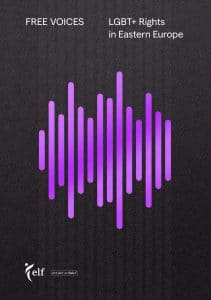
Free Voices: LGBT + Rights in Eastern Europe
This publication is an attempt to describe the situation of LGBTIQ+ people in Eastern Europe, thirty years after the process of transformation began in the region.
- Type: Publication,
- Year: 2022
- Language: English,
- Member: Projekt:Polska,
Page 1 of 9